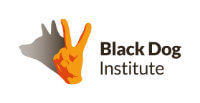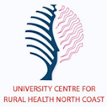In this episode, we speak to Angela Sheridan and Rebecca Pevitt aboutWellMob – an online platform of Indigenous knowledge and wisdom for health professionals to strengthen their practice with Aboriginal and Torres Strait Islander clients and patients.
How can mental healthcare professionals adjust their practices to better serve Indigenous clients in culturally safe, responsive, and respectful ways?
In this episode of Digital Mental Health Musings, Dr Tania McMahon talks to social worker Bec Pevitt and Project Officer Angela Sheridan from WellMob – an online platform that shares Indigenous knowledge and wisdom to health professionals to strengthen the social, emotional, spiritual and cultural wellbeing of Aboriginal and Torres Strait Islander peoples by bringing together a rich collection of culturally responsive digital mental healthcare tools and resources.
The hub was created to help time-poor health professionals access resources created by Mob for Mob that can improve the wellbeing of Indigenous people and help them stay connected to culture. Whether sharing a video on traditional methods of trauma healing, podcasts featuring yarns with Indigenous community leaders and health professionals, or sleep and mindfulness apps digital mental health has broadened the reach of traditional knowledge and ways of healing.
“Digital mental health has broadened access to this knowledge that has traditionally been really tightly held within these communities. Nowadays being able to record our elders, being able to record our stories of traditional practice, of why do the things that we do – especially when it comes to culture and country because they’re parts of us that keep us feeling well and strong – makes it easier for Aboriginal and Torres Strait Islander people to access, especially if we’re living away from our community and family. We’re now able to tap into that in a digital way so that we get that same benefit of maintaining those connections.”
– Angela Sheridan, WellMob Project Officer
In this conversation we chat about Indigenous approaches to mental health, like the social and emotional wellbeing model of healthcare – a holistic approach that recognises the significance of culture and history as important factors that inform and guide understandings of physical and mental health for Aboriginal and Torres Strait Islander people. We discuss how that’s different from mainstream models of care and how culturally safe resources, developed by and with Aboriginal communities, represent best-practice healthcare for Aboriginal people leading to much better outcomes for Indigenous patients and clients.
“Social and emotional wellbeing is more than mental health – community, country, culture and our kinship systems aren’t separate to self – we’re all intertwined and interconnected. It acknowledges that social, political and historical determinants can weaken or disrupt those connections. It’s model of care that isn’t just issue or symptom focussed – it’s a holistic concept that underpins our entire way of doing, knowing and being.”
– Angela Sheridan
We discuss the ongoing impacts of colonisation, the legacy of intergenerational trauma from segregation policies, assimilation and the forced removal of children from families, and the resources and tools that WellMob provides access to that can help non-Indigenous health professionals understand historical cultural context when working with today’s First Nations people.
“Cultural humility and really understanding that my role as a non-indigenous health worker is to seek to understand … When it comes to indigenous clients, I’m looking at how difficult it must be to come in for that first appointment, into a place where ancestors and relatives have had experiences that have caused trauma.”
– Rebecca Revitt, Social Worker
By creating culturally responsive and safe practices, practitioners can help to reduce long-standing disparities in Indigenous mental health care.
Who is Angela Sheridan?
Angela Sheridan is a Wiradjuri woman from south central NSW. She has grown up in Lismore, Widjabul Wyabul country in the Bundjalung nation of northern NSW. Angela is a grass roots community member, and her lived experience has led her to find her passion of Indigenous social and emotional wellbeing. She has previously worked in Asset based Community development project work and as an Aboriginal health/community worker. She originally was involved in the community and health worker yarning circles with the WellMob project which informed the development of the WellMob project into its current form of a website library of resources. Now she is a project officer in the WellMob team and manages social media content creation.
Who is Rebecca Pevitt?
Rebecca Pevitt is a social worker, she has worked in drug and alcohol and gambling treatment programs across the NGO and Health sector for the past 9 years.
Currently Rebecca is in a counselling role with NSW Health at Riverlands drug and alcohol counselling service. This service offers free and confidential counselling to people experiencing severe drug and alcohol misuse issues.
“I’m passionate about working with people who want to make changes to the way they use substances. Each client is a unique individual with their own history and I always aim to provide support to clients in a way that they find helpful. I consider myself to be lucky to be able to support people to make the changes that they decide that they want to make”.
WellMob: https://wellmob.org.au/
Follow WellMob on Facebook at https://www.facebook.com/WellMobAU
Follow WellMob on Instagram at https://www.instagram.com/wellmob/
WellMob Training Resources: https://wellmob.org.au/e-health-topics/training-resources/
WellMob Resource Sheets for Workers: https://wellmob.org.au/e-health-topics/training-resources/resource-sheets-for-workers/
Our Words Matter: guidelines for language use: https://bit.ly/451swX7
Journey of health and wellbeing: https://bit.ly/3rJ3opB
Listen to the full conversation below. You can also access Digital Mental Health Musings on Soundcloud, Apple Podcasts, Spotify, Google Podcasts, Amazon Music, and Deezer.
Comments are closed.





